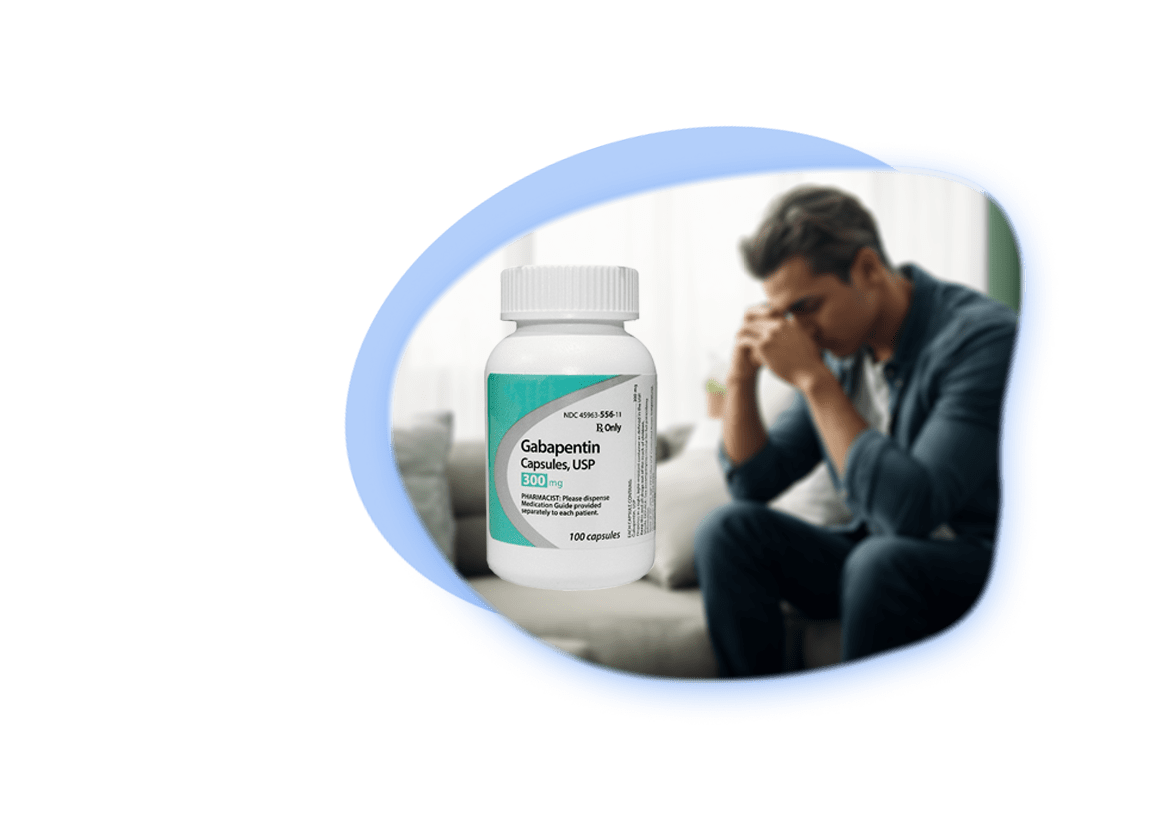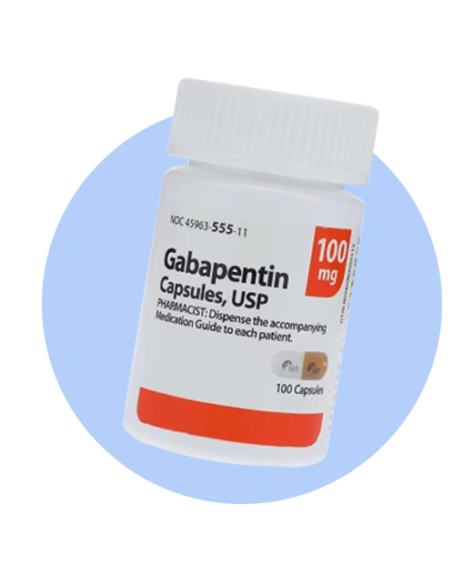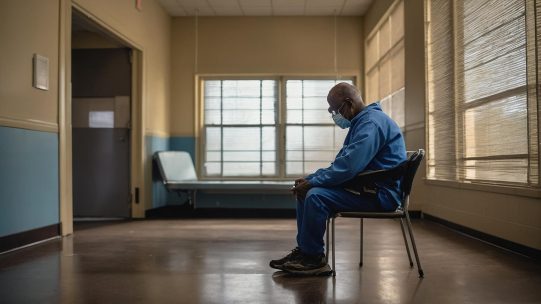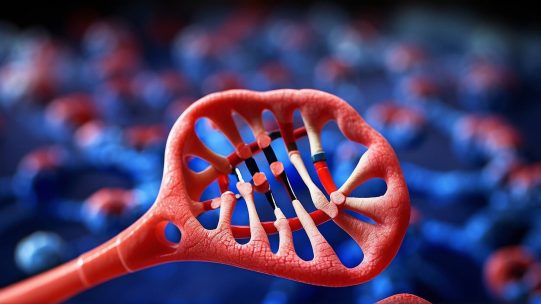Buy Neurontin (Gabapentin) Online USA

Gabapentin (Neurontin) 100 | 300 | 400 | 600mg
Neurontin – Generic name: Gabapentin
What is Gabapentin (Neurontin)?: Gabapentin is also known as Neurontin. It is a widely prescribed medication in psychology and neurology. Gabapentin – is a medicine used to treat partial seizures, nerve pain from shingles and restless leg syndrome. This medication plays a critical role in increasing slow-wave sleep among patients with anxiety and sleep disorder. Gabapentin provides a safe and effective way to treat insomnia and anxiety.
Gabapentin (Neurontin) works on the chemical messengers in your brain and nerves.

Before taking Gabapentin (Neurontin)
You should not take gabapentin if you are allergic to it.
To make sure this medicine is safe for you, tell your doctor if you have ever had:
- Breathing problems;
- Diabetes;
- Depression, a mood disorder, or suicidal thoughts or actions;
- Drink alcohol;
- A history of drug addiction;
- A seizure;
- (patients with RLS) if you are a day sleeper or work a night shift; or
- Kidney disease (or if you are on dialysis).
Children taking gabapentin may experience behavioral changes. Watch for changes in mood and symptoms. Your family and caregivers should also be aware of any sudden changes in your behavior. It is not known whether gabapentin will harm your unborn child. Tell your doctor if you are pregnant or planning to become pregnant. Do not start or stop seizure medications during pregnancy without your doctor’s advice. Seizures during pregnancy can harm both mother and baby. Tell your doctor if you become pregnant. If you are pregnant, your name may be listed on a pregnancy registry to track the effects of gabapentin on the baby.
GABAPENTIN | Neurontin: Side Effects and How to Take
What Are the Benefits of Gabapentin?
Gabapentin for sleep and anxiety comes with many health benefits such as:
- Can improve your sleep quality by simply increasing slow-wave sleep
- Treats moderate to severe rest leg syndrome
- It’s not among the controlled substances
- Comes with a wide safety margin
- Doesn’t cause respiratory depression
- Has fewer drug interactions than other medications
- Can’t be metabolized by your liver
- Used with other drugs to control or prevent seizures
- Can relieve nerve pain following shingles in adults
How should I take Gabapentin (Neurontin)?
Gabapentin should be taken exactly as prescribed by a physician. Follow all instructions on the prescription label. Your doctor may change your dose from time to time.
Do not take Gabapentin in larger or longer doses than prescribed.
If you switch to a different brand, strength, or form of this medication, your required dosage may change. Avoid medication errors by using only the medication prescribed by your doctor.
Both Glarize and Horizant should be taken with food.
Neurontin can be taken with or without food.
If you break a tablet and take only half, take the other half at your next dose. Tablets that have been broken should be used as soon as possible or within a few days.
Glarease and Hollisant tablets should be swallowed whole. Do not crush, break, or dissolve them. Capsules should be swallowed whole; do not crush, chew, break, or open capsules.
Measure the liquid with the provided measuring cup (not a kitchen spoon).
Dosage is based on the child’s weight. If the child gains or loses weight, the dose may change.
Do not stop taking Gabapentin abruptly. Abrupt discontinuation may increase seizures. Follow your doctor’s instructions for dose titration.
This medication may affect the results of certain medical tests. Inform your treating physician that you are using gabapentin.
Your kidney function should be checked frequently and your dose may be changed based on the results.
Store tablets and capsules at room temperature away from moisture and heat.
Liquid medications should be stored in the refrigerator and should not be frozen.
Follow all storage instructions provided. Your pharmacist can provide more information on how to store this medication.
Popular FAQ
Gabapentin helps relieve nerve pain in some people with postherpetic neuralgia (nerve pain after shingles) and peripheral diabetic neuropathy (nerve pain in the legs of diabetics). According to a Cochrane review, 3-4 out of 10 patients with these conditions reported at least a 50% reduction in pain intensity when prescribed 1800 mg to 3600 mg/day of gabapentin (gabapentin carbil: 1200 mg to 3600 mg/day). In contrast, only one or two out of 10 who received a placebo (inactive treatment) did so. Those who experienced improved pain relief with gabapentin would also be expected to experience improvements in sleep, fatigue, and mood.
Gabapentin is often used to treat nerve pain, but is classified as an anticonvulsant rather than an opioid or analgesic. Gabapentin is used to treat postherpetic neuralgia (a type of nerve pain that can be caused by the outbreak of shingles) and restless legs syndrome (RLS) (an unpleasant urge to move the legs at night).
Case reports indicate that withdrawal symptoms from gabapentin may last 5-10 days or longer, but their duration has not been well established in human studies. Symptoms and their duration depend on the dose and duration of the medication being taken.
Gabapentin may cause weight gain, but it is an uncommon side effect. Studies have shown that a small number of people taking gabapentin weight gain. People who do gain weight may gain about 5 pounds after 6 weeks of use
The most appropriate time to take gabapentin for sleep and anxiety is around 09:00 pm or just before your usual bedtime. Once you take this medication you will feel relaxed and calmed before falling asleep.
Dosing information
Usual Adult Dose for Epilepsy:
Initial dose: 300 mg orally on day one, 300 mg orally 2 times day on day two, then 300 mg orally 3 times a day on day three
Maintenance dose: 300 to 600 mg orally 3 times a day
Maximum dose: 3600 mg orally daily (in 3 divided doses)
-Maximum time between doses in the 3 times a day schedule should not exceed 12 hours
Usual Adult Dose for Postherpetic Neuralgia:
-Initial dose: 300 mg orally on day one, 300 mg orally 2 times day on day two, then 300 mg orally 3 times a day on day three
-Titrate up as needed for pain relief
-Maximum dose: 1800 mg per day (600 mg orally 3 times a day)
Use: Postherpetic neuralgia
What happens if I miss a dose?
Take the medication as soon as possible, but if it is almost time for your next dose, skip the missed dose. Do not take two doses at once.
What happens if I overdose?
Get emergency medical care or call the Poison Help Line at 1-800-222-1222. An overdose can be fatal. Symptoms of overdose include slow breathing, double vision, tremors, slurred speech, drowsiness, altered mental status, dizziness, fatigue, and diarrhea.
What should I avoid while taking Gabapentin?
Avoid driving or hazardous activity until you know how gabapentin will affect you. Dizziness or drowsiness can cause falls, accidents, or severe injuries.
Avoid taking an antacid within 2 hours before you take gabapentin.
Do not drink alcohol. Dangerous side effects could occur.
Gabapentin side effects
Seek emergency medical attention if you have signs of an allergic reaction to gabapentin (hives, difficulty breathing, swelling of the face, lips, tongue, or throat).
Seek medical attention if you have a severe drug reaction that may affect many parts of your body. Symptoms may include skin rashes, fever, swollen glands, muscle pain, severe weakness, unusual bruising, and yellowing of the skin or eyes.
Tell your doctor immediately if you experience any new or sudden changes in mood or behavior, such as depression, anxiety, panic attacks, sleep disturbances, impulsivity, irritability, agitation, hostility, aggression, restlessness, activity, talkativeness, or thoughts of suicide or suicide.
Gabapentin may slow or stop breathing, especially if you have recently used opioid medications or alcohol. If breathing is slow and there are long pauses, if the lips are blue in color, or if the patient has difficulty waking up, the person caring for the patient should seek emergency medical attention.
Children taking gabapentin are more likely to experience some side effects. Contact your doctor if your child has any of the following side effects: changes in behavior, memory problems, poor concentration, restlessness, hostile or aggressive behavior.
Gabapentin may cause serious side effects. Call your doctor at once if you have:
- Drowsiness, dizziness, weakness;
- Problems with balance or muscle movement; or
- Increased seizures.
Common gabapentin side effects may include:
- Dever, chills, sore throat, body aches, tiredness;
- Headache;
- Swelling of your legs and feet;
- Trouble speaking;
- Vision problems, dizziness, drowsiness;
- Tremors, problems with balance or muscle movement; or
- Nausea, vomiting.
Gabapentin (Neurontin) User Reviews
“This is the best medicine for anxiety I have ever tried. Do you know how it makes me feel? Like I did when I was a kid before I had anxiety. I spoke freely. I didn’t have to worry about being judged. So now, with this drug, I don’t analyze every word I say before I say it, panicking that I might say the “wrong” thing. I speak freely and comfortably again. I am myself.”
HBerry
“I am being treated for treatment-resistant depression, GAD with panic attacks, and PTSD. I have been on a number of medications in combination but have had no relief. My psychiatrist recommended electroconvulsive therapy as a more aggressive approach. I went home feeling defeated and cold turkey stopped all medications. Superb idea! I had a very bad “cessation effect” although I wouldn’t call it withdrawal. Fortunately, I had a supportive husband who helped me find a new doctor. That doctor asked if I had ever tried gabapentin. I had never heard of it. I started with 100 mg 3 times a day and now I am on 1200 mg 3 times a day, 225 mg Effexor and 45 mg Remeron for sleep. I do not suffer anymore! I haven’t had a panic attack in months and I feel so much better. I also like the fact that I can still feel. I can still experience all the emotions appropriate to the situation. I laugh, I cry, I get excited, I get scared. For the first time in the last few years, I feel in control.”
Reborn
“If you suffer from anxiety, bipolar, PTSD , panic attacks or like me all the above – THIS PARTICULAR MEDICINE WILL BE THE ULTIMATE!!!! I’ve taken it since 2008. I take 600mg 3x a day. It worked for me very quickly. I’ve tried so many different medications, all having terrible side effects, not this one. It has 100% been my personal saving grace. I can function completely, can feel all emotions (not that I like to sometimes) it works wonders while not zapping your personality!! I HIGHLY RECOMMEND TRYING GABAPENTIN, especially if you are hard to treat like I was!”
Comaw
Why we?

Gabapentin (Neurontin) Alternatives Compared
| Gabapentin | Neurontin | Trazodone |
| Gabapentin is sometimes used to treat partial-onset seizures and neuralgia, but is likely to cause dizziness and drowsiness; gabapentin enacarbil (brand name Horizant), a prodrug of gabapentin that can be taken once a day, is sometimes used to treat RLS and postherpetic neuralgia. Prescribed for anxiety, alcohol withdrawal, alcohol use disorders, benign essential tremor, postherpetic neuralgia, back pain, bipolar disorder, burning mouth syndrome, carpal tunnel syndrome, chronic kidney disease-related pruritus, chronic pain, cluster-tick syndrome, cough, diabetic peripheral neuropathy, epilepsy, erythematous neuralgia, fibromyalgia Migraine, hiccups, hot flashes, hyperhidrosis, insomnia, Lhermitte’s sign, migraine, nausea/vomiting – chemotherapy induced, neuropathic pain, occipital neuralgia, pain, periodic limb movement disorder, peripheral neuropathy, postmenopausal symptoms, primary orthostatic tremor, pruritus, pubic neuralgia, reflex sympathetic dystrophy syndrome, Restless Leg Syndrome, small fiber neuropathy, spondylolisthesis, syringomyelia, transverse myelitis, trigeminal neuralgia, vulvodynia. | Neurontin is sometimes used to treat partial seizures and neuralgia, but is more likely to cause dizziness and drowsiness. Because of its short duration of effect, it must be administered three times daily. It is prescribed for postherpetic neuralgia and epilepsy. Neurontin may also be used for purposes not listed in this comparative guide. | Trazodone is most often used for its sleep-inducing effects (an off-label indication) rather than as an antidepressant. It is available only in generic form, is very inexpensive compared to other sleep-inducing drugs, and is not classified as a controlled substance. However, they can cause withdrawal symptoms upon discontinuation. It is prescribed for fibromyalgia, anxiety, headache, depression, major depressive disorder, reflex sympathetic dystrophy syndrome, sedation, and insomnia. Trazodone may also be used for purposes not listed in this comparative guide. |
| Generic Status | ||
| Lower-cost generic is available | Lower-cost generic is available | Lower-cost generic is available |
| Ratings & Reviews | ||
| Gabapentin has an average rating of 7.1 out of 10 from a total of 2490 ratings on Drugs.com. 63% of reviewers reported a positive effect, while 21% reported a negative effect. | Neurontin has an average rating of 7.3 out of 10 from a total of 193 ratings on Drugs.com. 65% of reviewers reported a positive effect, while 13% reported a negative effect. | Trazodone has an average rating of 6.3 out of 10 from a total of 1403 ratings on Drugs.com. 53% of reviewers reported a positive effect, while 31% reported a negative effect. |
Our Team

Dr Ulrike Thieme





Leave Your Comment